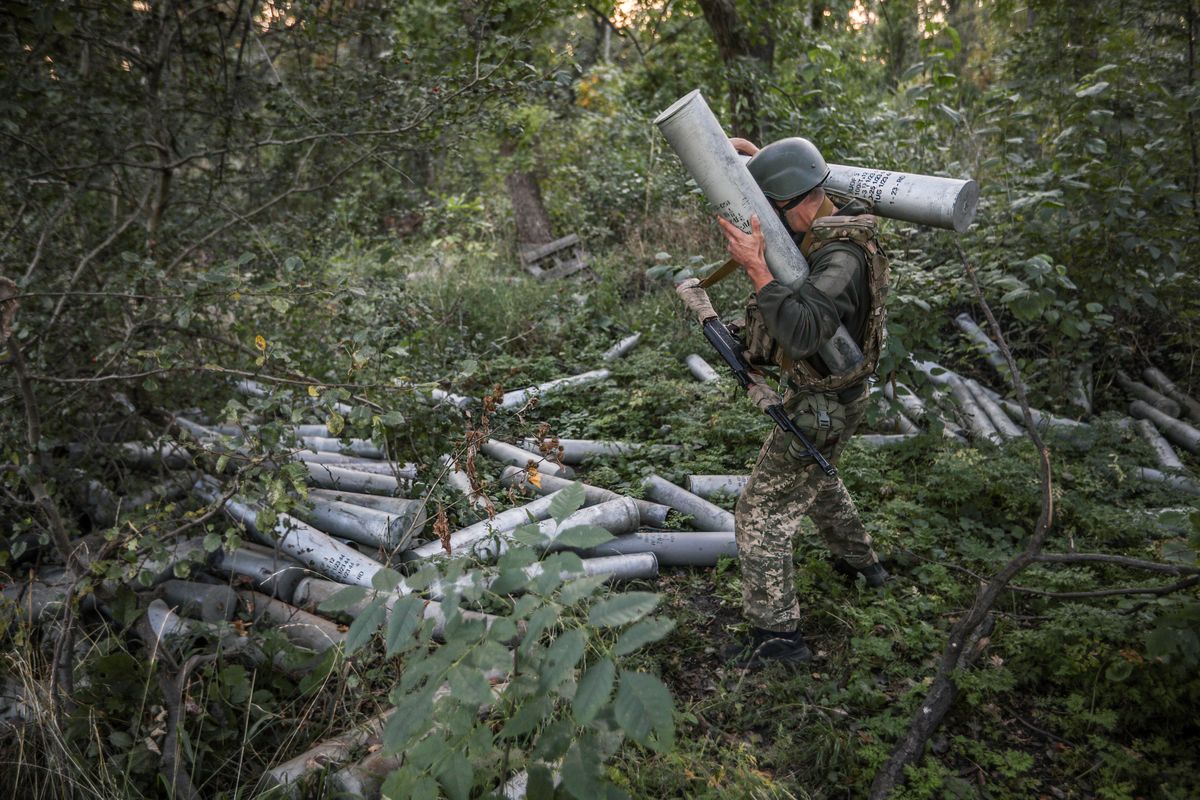Kevin McCarthy being ousted as House speaker means Ukrainian troops may not get the gear they need when they need it.
For now, Patrick McHenry (R-NC) holds the post of Speaker Pro Tempore and is tasked with organizing the vote for a new House speaker — but given the slim paths to a win for other candidates, he may be in charge a while.
No matter who is holding the gavel ahead of the Nov. 17 funding deadline, they’ll need their head on a swivel, says Jon Lieber, Eurasia Group’s managing director for the US.
“Whoever the new speaker is will have to keep their eyes on the group of members that tossed out McCarthy, leaving them very little room to maneuver on spending issues,” he says.
The White House’s $24 billion request “could move on a bill to keep the government funded past Nov. 17, but it's not at all clear that House Republicans could pass such a bill, despite overwhelming bipartisan support in both chambers," Lieber adds.
Trying to move the funding through a one-off supplementary funding package could jeopardize the speaker’s position despite widespread bipartisan support, further lowering its odds.
The expected paralysis is confounding for European allies. Jan Techau, Eurasia Group’s director for Germany and former speechwriter for German Defense Minister Boris Pistorius, says his former colleagues in Berlin are not sugarcoating the situation.
“There is grave concern that this latest development in the US would have, first of all, a dramatic impact on Ukraine itself, but by default then also put allies under pressure,” he says.
Germany, like many countries supporting Ukraine, is drawing on pre-existing stockpiles of weapons and ammunition, everything from artillery shells to main battle tanks, without replacing them quickly. Trying to make up for unexpected bottlenecks in US support – a virtually impossible task given the relatively meager size of European arsenals compared to America’s – by drawing those stocks down further imperils Germany’s own security, but Ukraine doesn’t have time to wait for new units to come off the assembly line.
Techau says it’s not realistic that European allies could find ways to replace US funding drawdowns. Besides, even if they found a way around any NATO member objections to directly funding US weapons aid to Ukraine or tried to purchase weapons on the open market, “it wouldn’t do the trick,” he says. He estimates that production limitations on weapons are roughly 75% of the problem.
“What you need is weapons on the shelf that you can take right away and give to somebody. Only the US has that,” he adds.






